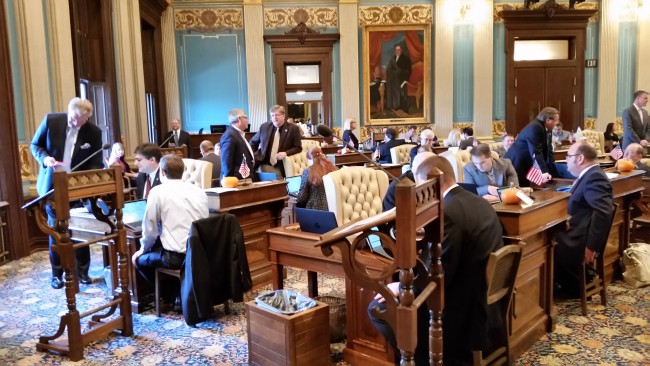-
Tips for becoming a good boxer - November 6, 2020
-
7 expert tips for making your hens night a memorable one - November 6, 2020
-
5 reasons to host your Christmas party on a cruise boat - November 6, 2020
-
What to do when you’re charged with a crime - November 6, 2020
-
Should you get one or multiple dogs? Here’s all you need to know - November 3, 2020
-
A Guide: How to Build Your Very Own Magic Mirror - February 14, 2019
-
Our Top Inspirational Baseball Stars - November 24, 2018
-
Five Tech Tools That Will Help You Turn Your Blog into a Business - November 24, 2018
-
How to Indulge on Vacation without Expanding Your Waist - November 9, 2018
-
5 Strategies for Businesses to Appeal to Today’s Increasingly Mobile-Crazed Customers - November 9, 2018
Michigan Senate, stuck at standstill, considers changes to House road funding plan
House Speaker Kevin Cotter, of Mount Pleasant, said when his package passed last week that there was no room for negotiation, that the House went as far as it could and would not renegotiate its position. The proposal includes using $600 million from the General Fund, increasing the gas tax by 3.3¢ cents and jacking up vehicle registration fees by $40 on average.
Advertisement
The tax increases are tied to two tax relief components otherwise unrelated to roads: an expansion of the Homestead Property Tax Credit and a potential rollback of the personal income tax rate in later years.
Michigan Republicans met behind closed-doors at 8 a.m.to discuss roads before session began. “We’re not going to risk other things, other priorities that we have to do this”, said Senate Majority Leader Arlan Meekhof (R-Ottawa County). That would cause budget pressures earlier, he said, after House Republicans addressed concerns by delaying fuel tax hikes and full implementation of the plan.
“Our residents work hard for their money”.
Under that plan vehicle registration fees would increase by 40 percent across the board. The 15-cent diesel tax also would rise to 22.3 cents a gallon.
When fully phased in in 2020-21, the bills would generate $1.2 billion for roads and public transit, including $643 million in overall tax and fee hikes, largely from higher registration taxes.
Sen. Mike Green, R-Mayville, opposes the legislation and said residents of his rural district are not willing to pay more for road repairs. “It’s important for all of us to put our egos aside and get a plan that all of us can live with, but not all of us necessarily love”.
The latest attempt to pass a roads fix will be the fourth attempt in the past year. the Senate passed a plan at the end of 2014, but it morphed into the May 1 ballot proposal to raise the state sales tax that got crushed by voters.
There has been opposition to the plan to shift so much money from the general fund from chambers of commerce and municipalities anxious that it could cut dwindling state revenues to essential services provided by communities even more.
But Cotter’s caucus wants to minimize fuel tax hikes so they can be offset with an expanded tax credit for homeowners and renters worth $200 million annually. Another $600 million eventually is redirected from existing tax revenue.
“At a few point, we can’t continue underfunding most things we do in Michigan”, said Hertel.
“I think there’s an avenue, I’m just not sure what it is yet with the group that we have in front of us in the House and the Senate”.
Advertisement
Republican lawmakers, who also control the House, are trying to enact a road-funding fix without support from Democrats concerned about the budget implications.





























